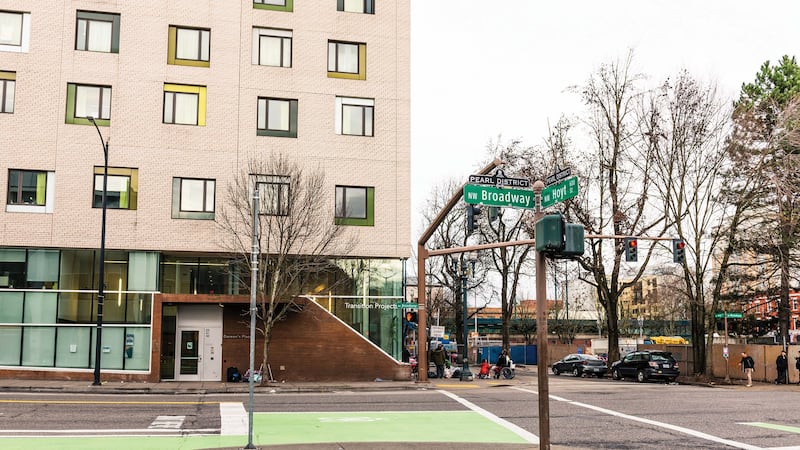City and county officials and advocates for the city's expansive homeless population today released a new Portland State University report that describes how people on the street would prefer to interact with police.
Portland Mayor Ted Wheeler, Commissioner Jo Ann Hardesty and County Chair Deborah Kafoury and Commissioner Susheela Jayapal all spoke about the need for a different response for calls for service involving the nearly 40,000 people in the city and county who lack permanent homes.
The PSU survey is part of building political support for a more humane and effective way of such calls.
Officials are calling the nascent program "Portland Street Response."
Portland is attempting to build on a 30-year-old private nonprofit program in Eugene called Crisis Assistance Helping Out On The Streets (CAHOOTS). Rather than sending police to low-acuity calls involving the homeless, CAHOOTS sends two person teams staffed by civilians—usually a medic and person trained in crisis intervention.
That response reportedly produces fewer violent confrontations, fewer arrests and reduces the demands on police.
As part of trying to shift Portland's 911 response to such calls from sending police officers, who are expensive, few in number and not necessarily trained to deal with mental health crises and other issues people who are homeless may face, PSU organized outreach that in July surveyed 184 people living on Portland's streets about how they'd like to be treated.
"Who better to offer opinions than those who use the services?" asked Wheeler, who is the city's police commissioner.
Related: Portlanders call 911 to report "unwanted" people more than any other reason. We listened in.
Those surveyed said they welcomed a police response when the situation involved violent crimes but not for more routine issues such as "camping, sleeping, drug overdoses, and mental health crises."
Behind the various officials as they spoke this morning were a variety of hand-lettered signs that survey respondents had made with messages such as "more love, less frisking" and "doctors not cops."
A key piece of the puzzle is the question of where first responders can take people in crisis who cannot stay where they are.
Multnomah County Chairwoman Deborah Kafoury provided a partial response to that: The county recently purchased a building in the west end that it hopes to convert to a drop-in center with temporary beds.
Hardesty, who oversees Portland Fire & Rescue and the Portland Bureau of Emergency Communications, said the current approach to responding to calls for service involving homeless people is often a "waste of public safety resources."
About half the arrests Portland police made last year involved homeless people Hardesty said, which in many cases amounts to criminalizing poverty.
Hardesty and Wheeler will bring a $500,000 Portland Street Response pilot project to city council in November.
"What we are doing now just doesn't make sense," Hardesty said.
